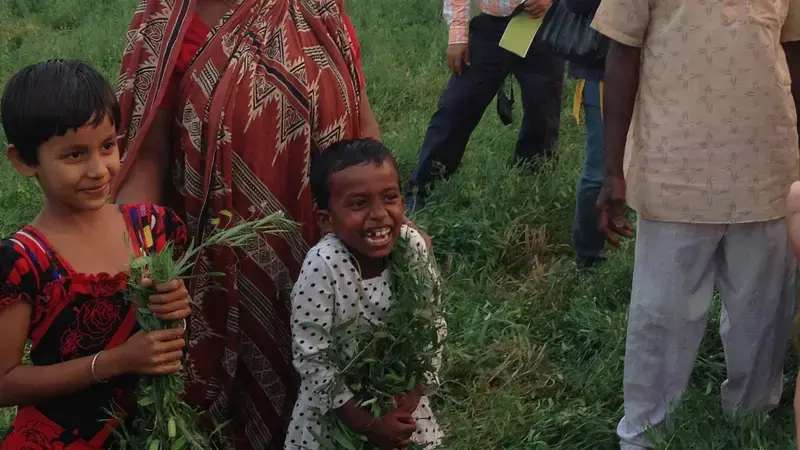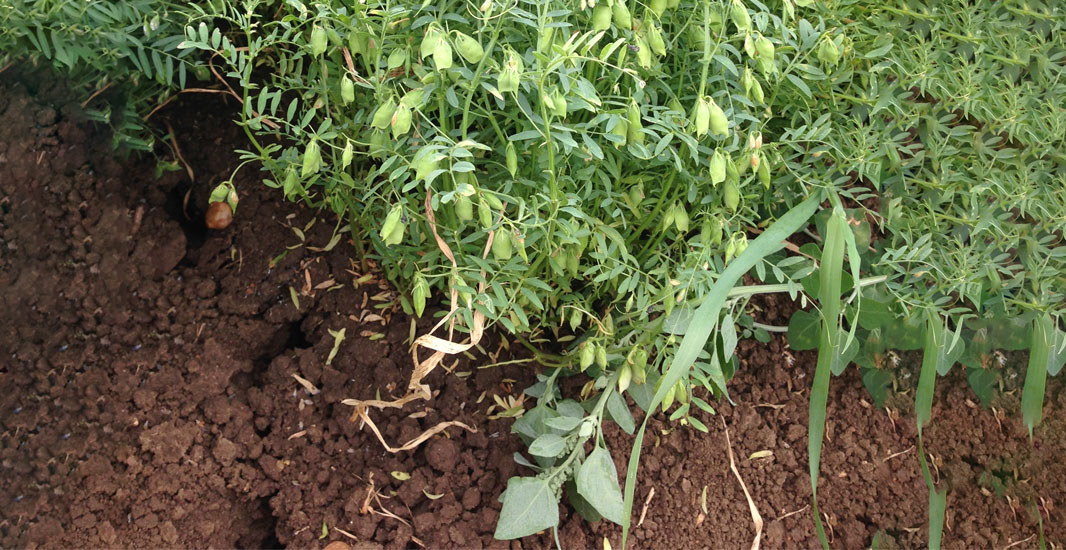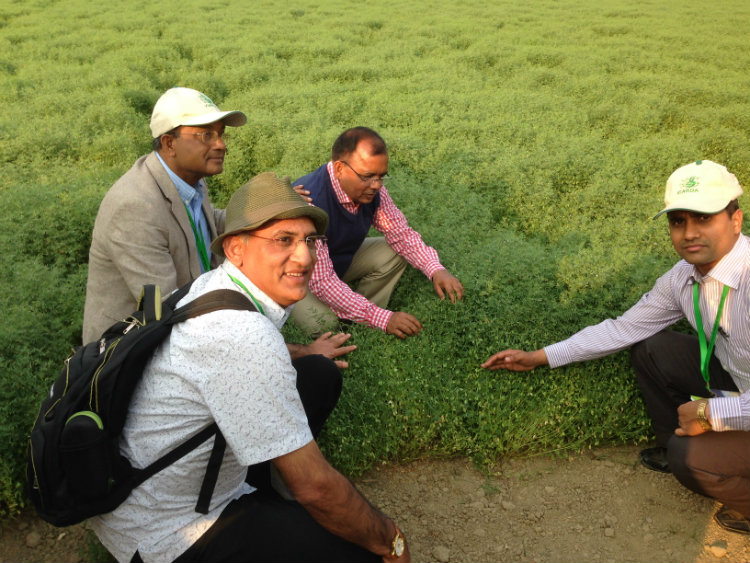'BARIMasur-8': a new micronutrient-rich lentil variety released in Bangladesh

ICARDA and the Pulses Research Centre of the Bangladesh Agricultural Research Institute (BARI), as partners of HarvestPlus Program (CRP-A4NH), have long been collaborating in the development of improved varieties and production technologies for lentil, an important pulse crop contributing to the food and nutritional security of people in Bangladesh. In early 2015, BARI released a micronutrient-rich variety - BARIMasur-8 – which is an outstanding lentil line developed by ICARDA scientists.
The new lentil variety was developed from a crossing made between the lines, ILL 5888 (BARIMasur-1, a Bangladeshi lentil cultivar) and ILL 6002 (an ICARDA breeding line). It was selected from among 412 lines supplied by ICARDA.
This improved variety is known for its stable and high yield. It gives an average seed yield of 2000-2200 kg/ha. It is rich in iron (72-75 ppm) and zinc (58-60 ppm), important nutritional qualities essential to combat micronutrient malnutrition, ‘the hidden hunger’. In the commonly available local varieties, iron and zinc contents vary between 55-62 ppm and 32-41 ppm respectively, and the average yield is around 1050-1100 kg/ha.
It also provides combined resistance to stemphylium blight and rust. This is a big assurance for farmers since stemphylium blight is a serious threat to lentil throughout South Asia (Bangladesh, Nepal and eastern Indian states). This short-duration variety matures in 110-115 days and fits very well in existing cropping patterns. Another desirable trait is that it has late planting potential (up to the last week of November), following the harvest of late-maturing rice varieties, which is important for the vast lentil and rice growing areas of Bangladesh.
Lentils, which contain high levels of protein, macronutrients, micronutrients (Fe, Zn and Se) and vitamins, are a rich source of dietary protein and micronutrients for poor consumers who cannot afford animal products due to high prices. Additionally, lentil straw is valuable feed for animals. Moreover, growing lentils in rotation provides sustainability to cereal-based cropping systems.
Funded by: CGIAR Research Program on Agriculture for Nutrition and Health



